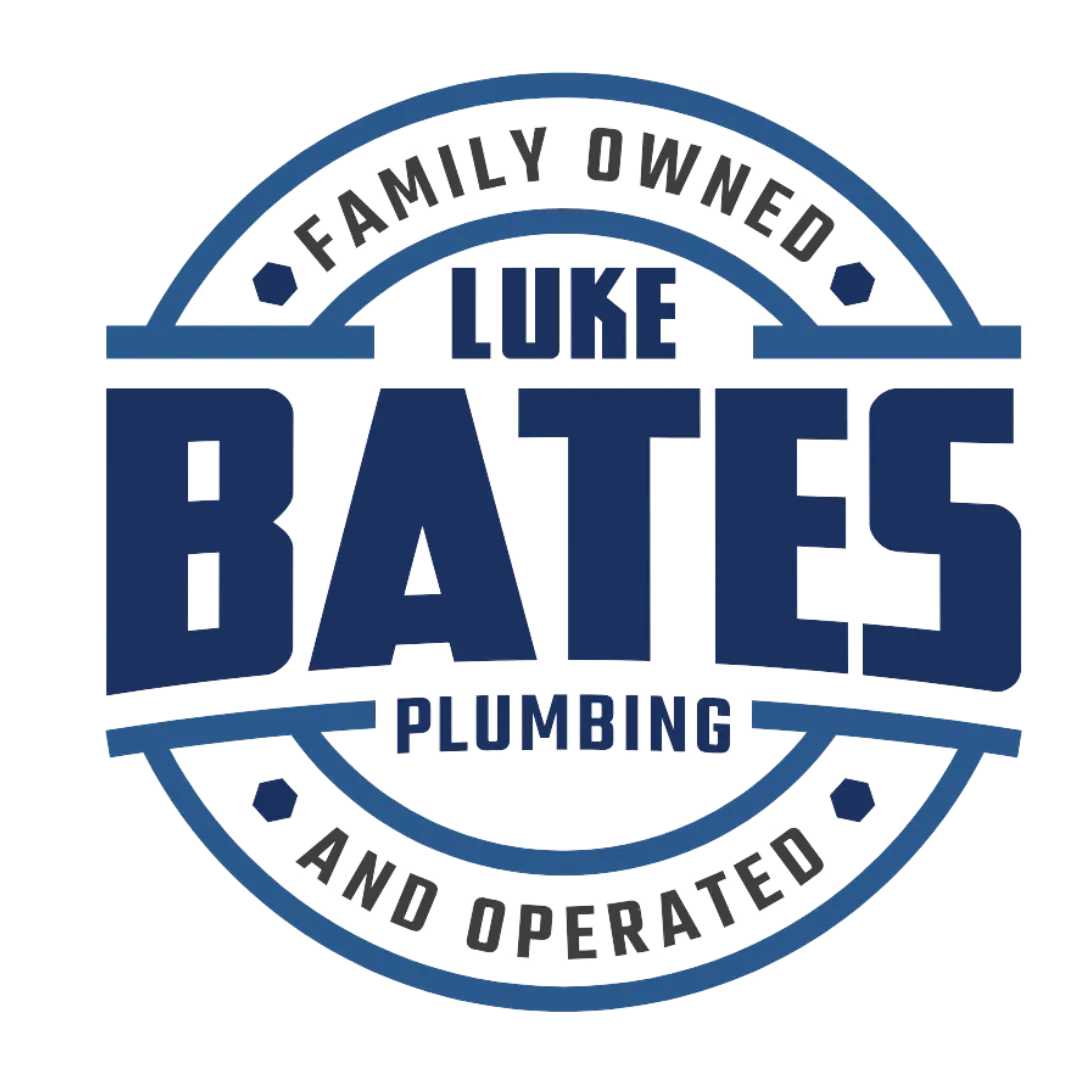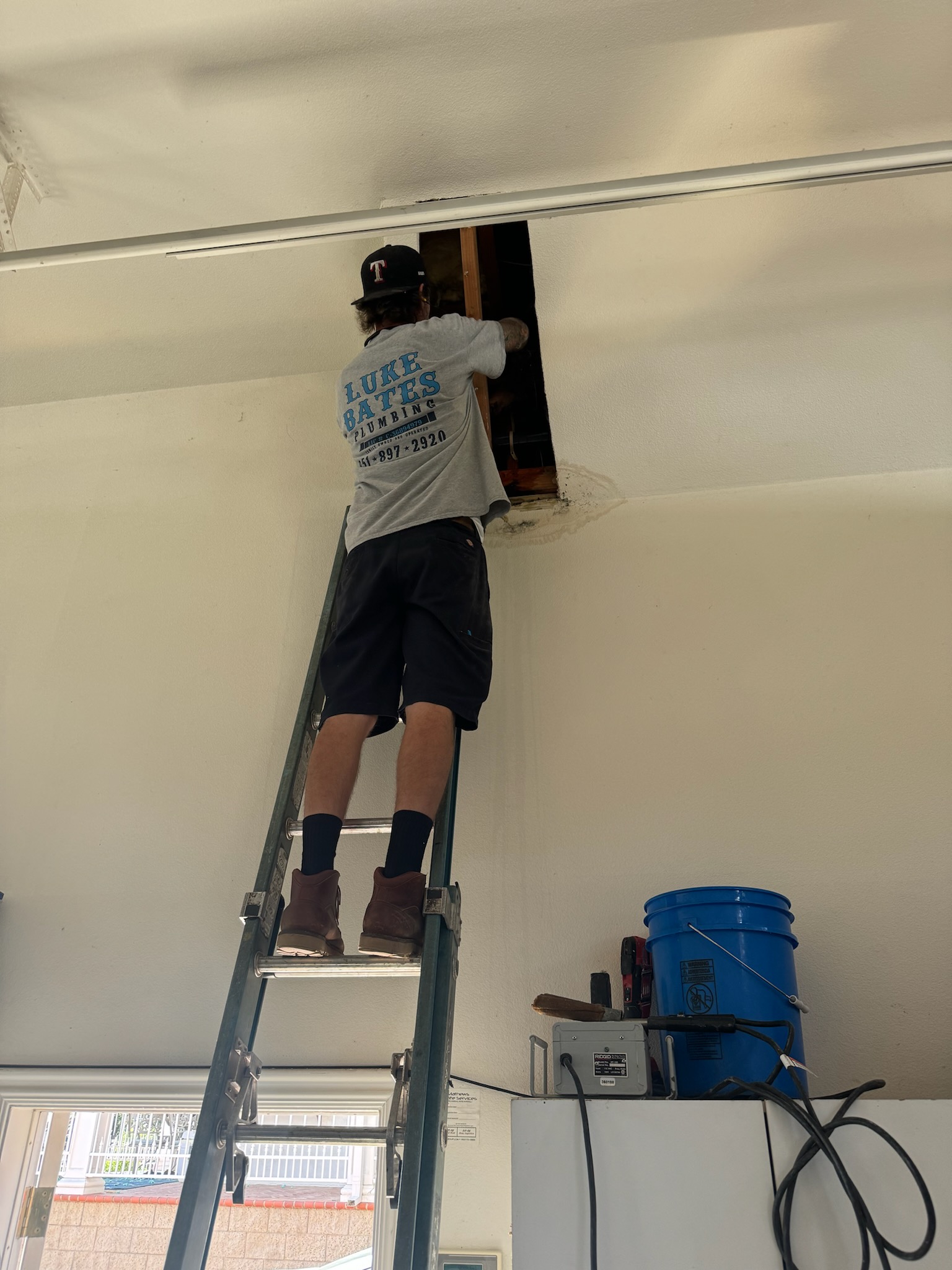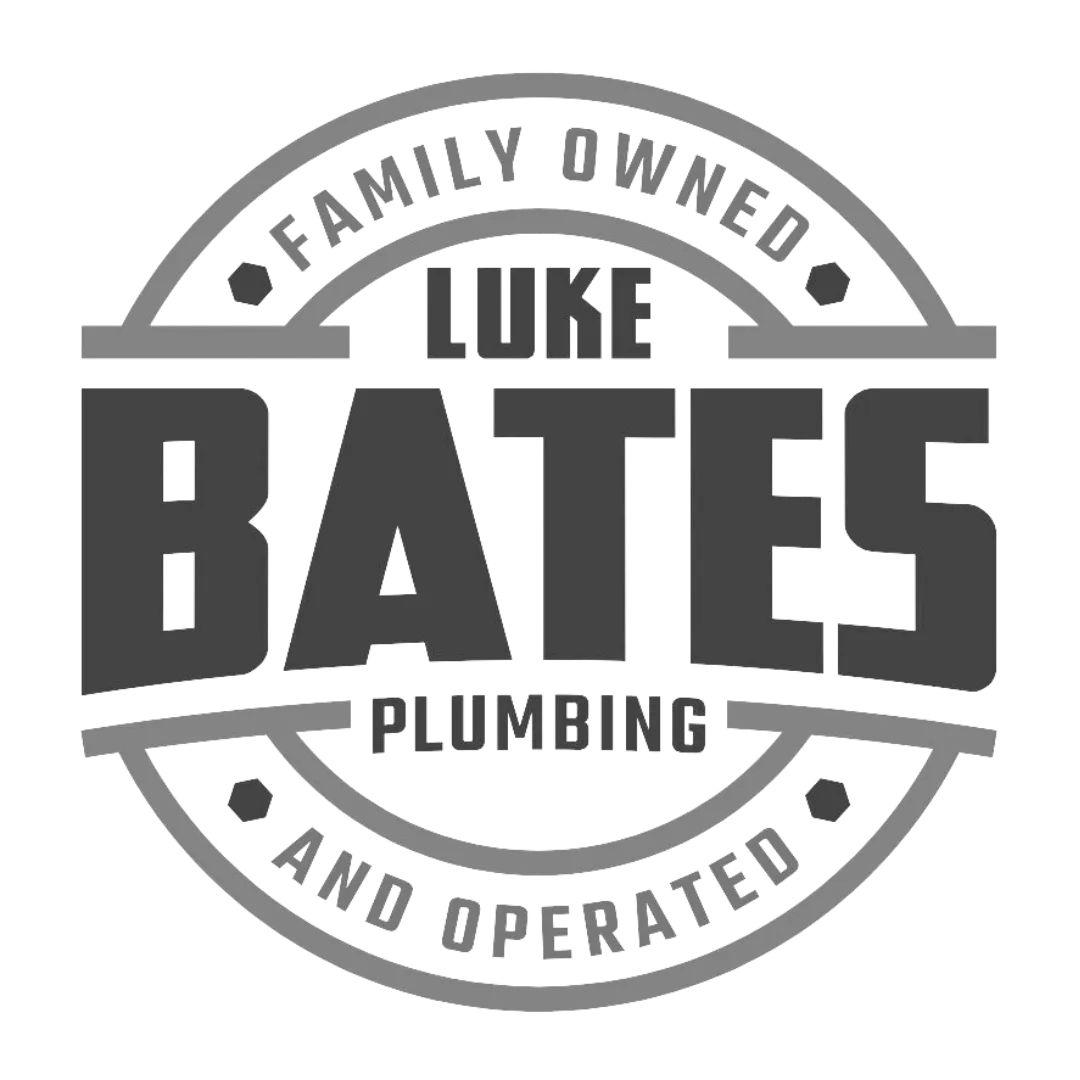Residential Plumbing Service
Our residential plumbing services encompass a wide range of installations, repairs, and maintenance tasks that ensure your home's water supply and waste disposal systems operate smoothly.
From water heaters and purification systems to faucets, toilets, and sewer lines, we provide an in-depth look at essential residential plumbing services.
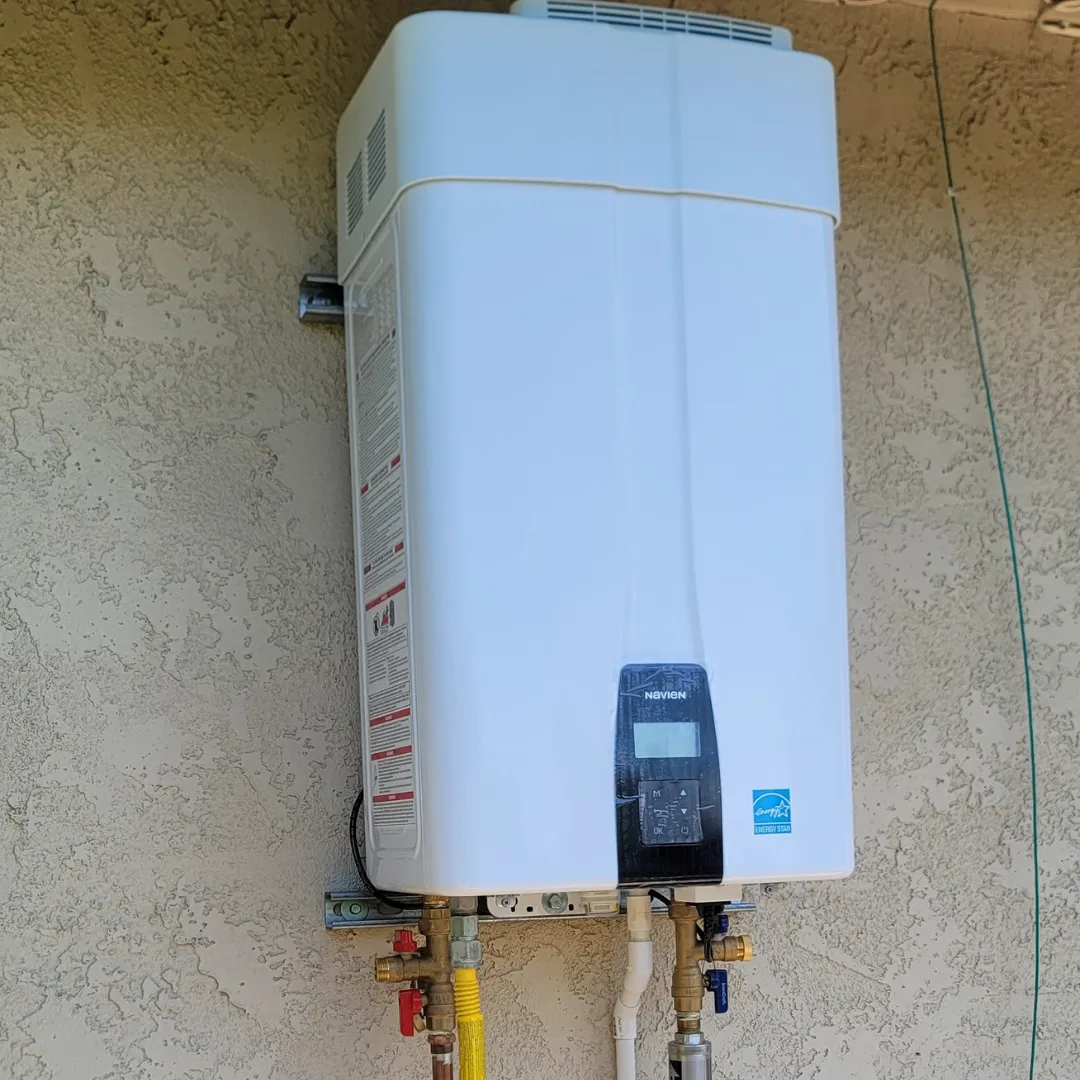
Why Choose Luke Bates Plumbing and Rooter?
At Luke Bates Plumbing and Rooter, our expertise stems from years of hands-on experience passed down through generations. Our team of skilled plumbers is equipped with the knowledge and tools to tackle any plumbing issue with precision and efficiency.
We prioritize our customers' satisfaction above all else. Our mission is to ensure that every job, big or small, is completed to the highest standards. We believe in building long-lasting relationships with our clients based on trust, reliability, and exceptional service.
Embracing modern technology allows us to offer advanced plumbing solutions. From high-tech diagnostic tools to cutting-edge repair methods, we utilize the best resources available to provide effective and lasting results.
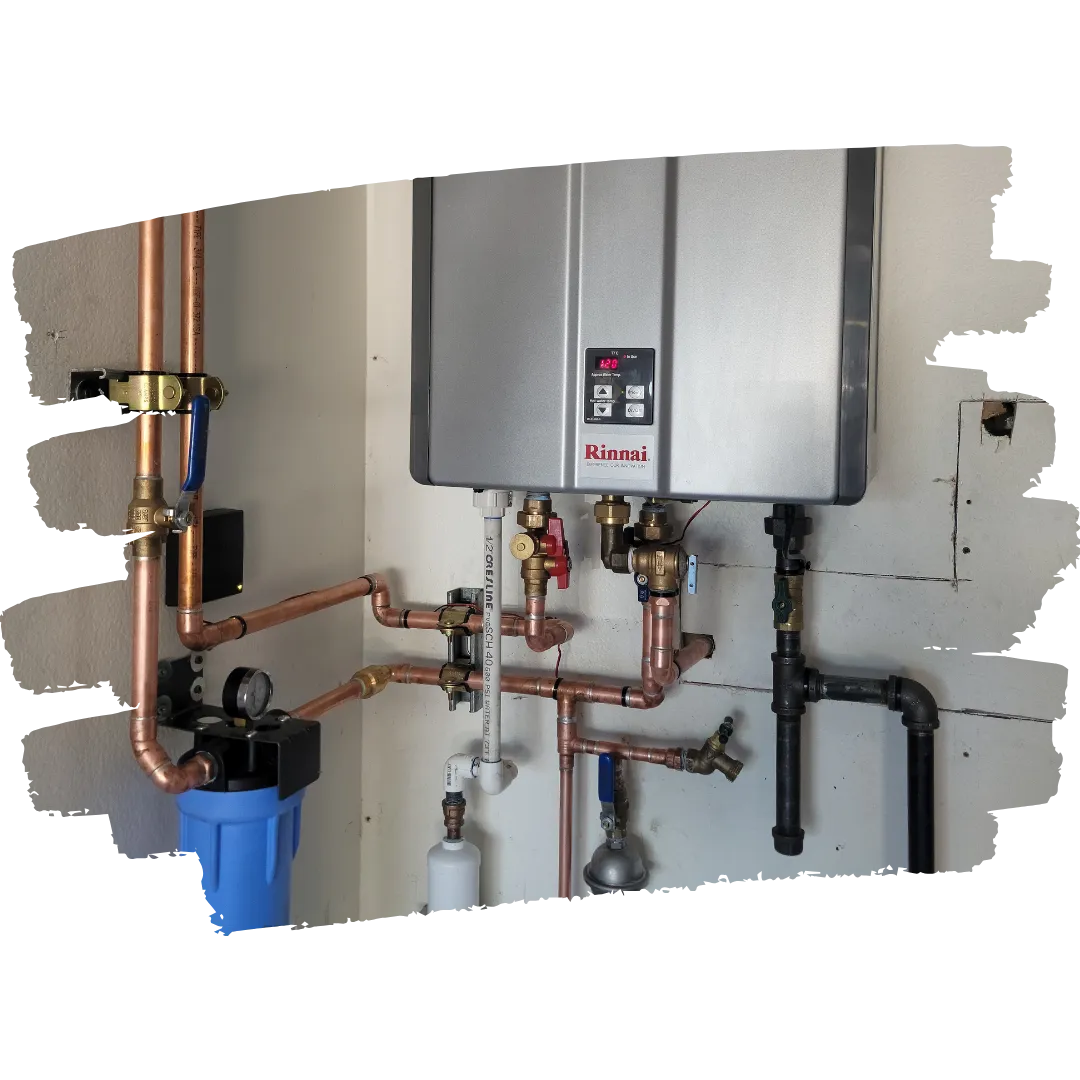
The Best of Residential Plumbing Service
Water heaters are a critical component of any home, providing hot water for showers, washing dishes, and laundry. There are two main types of water heaters: traditional tank water heaters and tankless water heaters.
Tankless Water Heaters also known as on-demand water heaters, these units heat water only when needed, providing an endless supply of hot water without the need for a storage tank. Tankless water heaters are more energy-efficient than traditional models, as they eliminate the standby heat loss associated with tank water heaters. They also take up less space and have a longer lifespan.

Residential Plumbing Service
Residential plumbing services encompass a wide range of installations, repairs, and maintenance tasks that ensure your home's water supply and waste disposal systems operate smoothly.
From water heaters and purification systems to faucets and sewer lines, this guide will provide an in-depth look at essential residential plumbing services.
Why Choose Luke Bates Plumbing and Rooter
At Bates Plumbing and Rooter, our expertise stems from years of hands-on experience passed down through generations. Our team of skilled plumbers is equipped with the knowledge and tools to tackle any plumbing issue with precision and efficiency.
We prioritize our customers' satisfaction above all else. Our mission is to ensure that every job, big or small, is completed to the highest standards. We believe in building long-lasting relationships with our clients based on trust, reliability, and exceptional service.
Embracing modern technology allows us to offer advanced plumbing solutions. From high-tech diagnostic tools to cutting-edge repair methods, we utilize the best resources available to provide effective and lasting results.
The Best of Residential Plumbing Service

Water heaters are a critical component of any home, providing hot water for showers, washing dishes, and laundry. There are two main types of water heaters: traditional tank water heaters and tankless water heaters.
Tankless Water Heaters also known as on-demand water heaters, these units heat water only when needed, providing an endless supply of hot water without the need for a storage tank. Tankless water heaters are more energy-efficient than traditional models, as they eliminate the standby heat loss associated with tank water heaters. They also take up less space and have a longer lifespan.
Recent Residential Plumbing Service
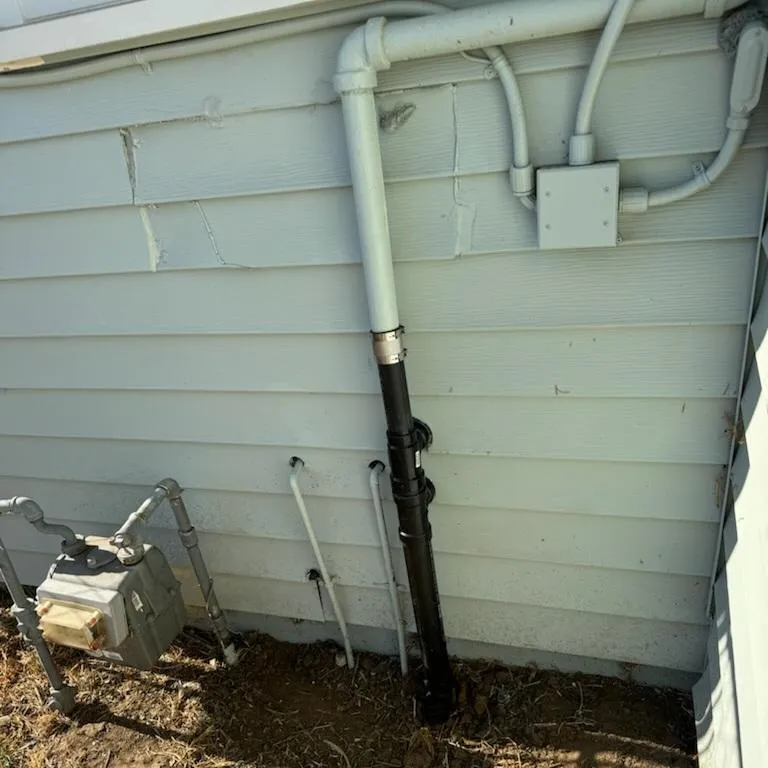
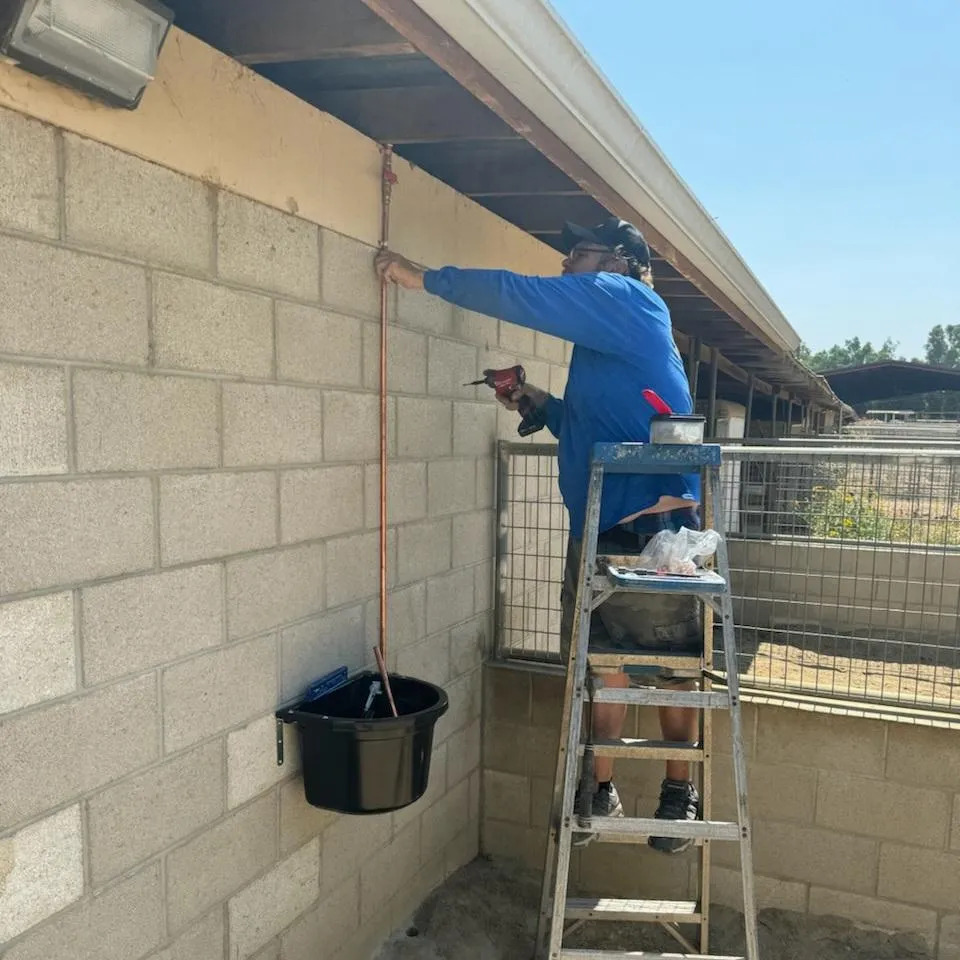
Recent Plumbing Service


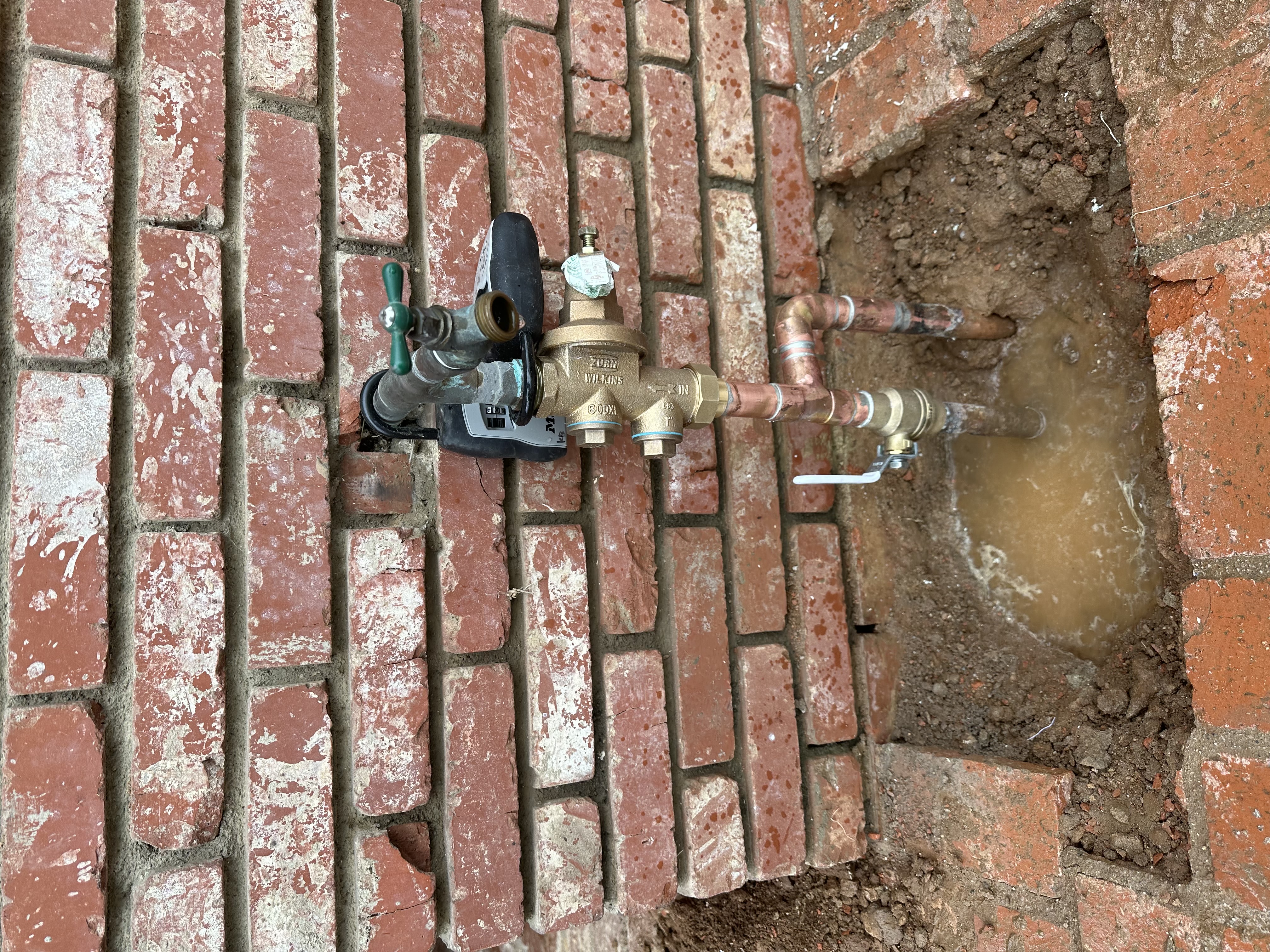
Our Process For
Residential Plumbing Service
Pipe's Busted?
Notice signs like water pooling in your yard, a sudden drop in water pressure, or an unexplained spike in your water bill—these could indicate a water main leak.
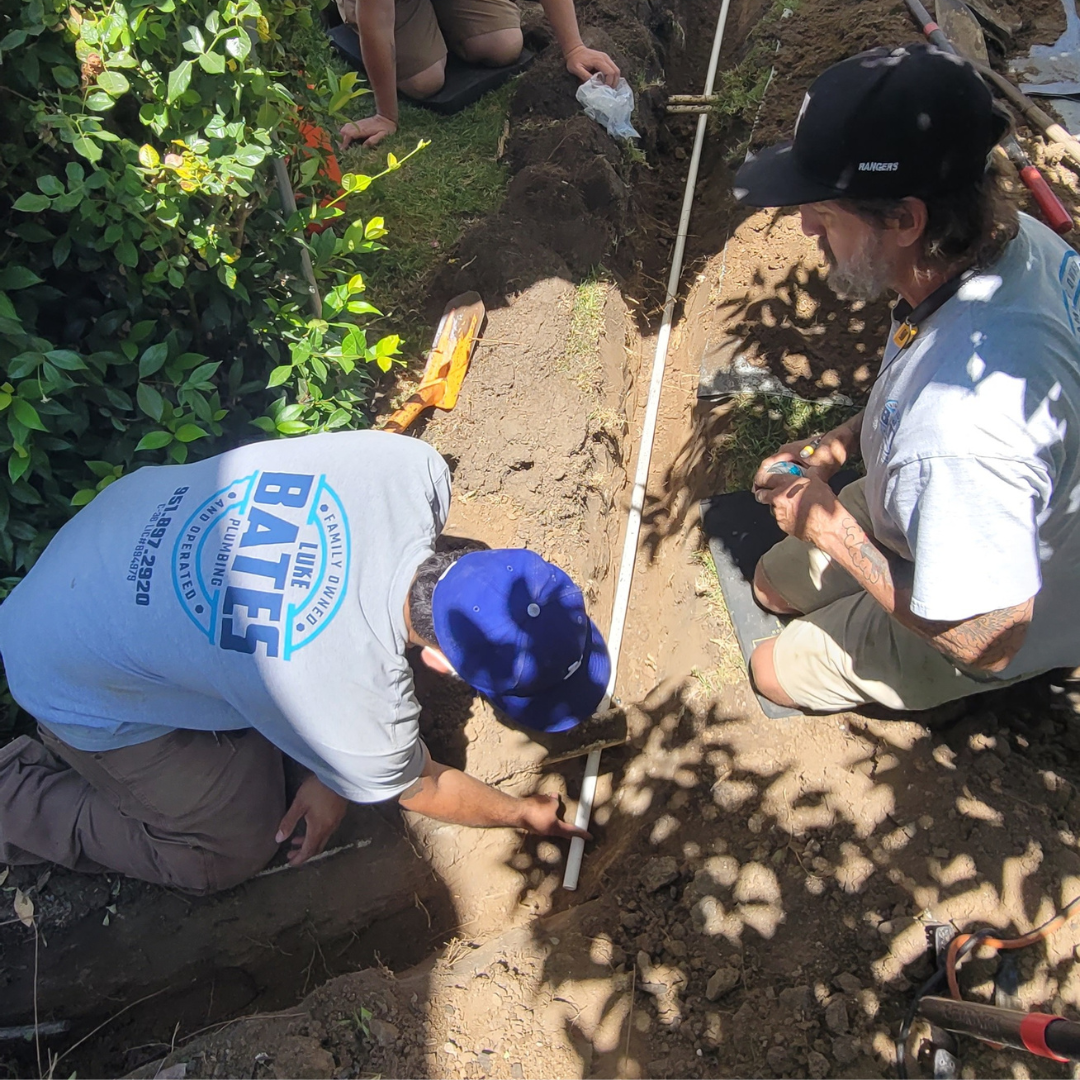

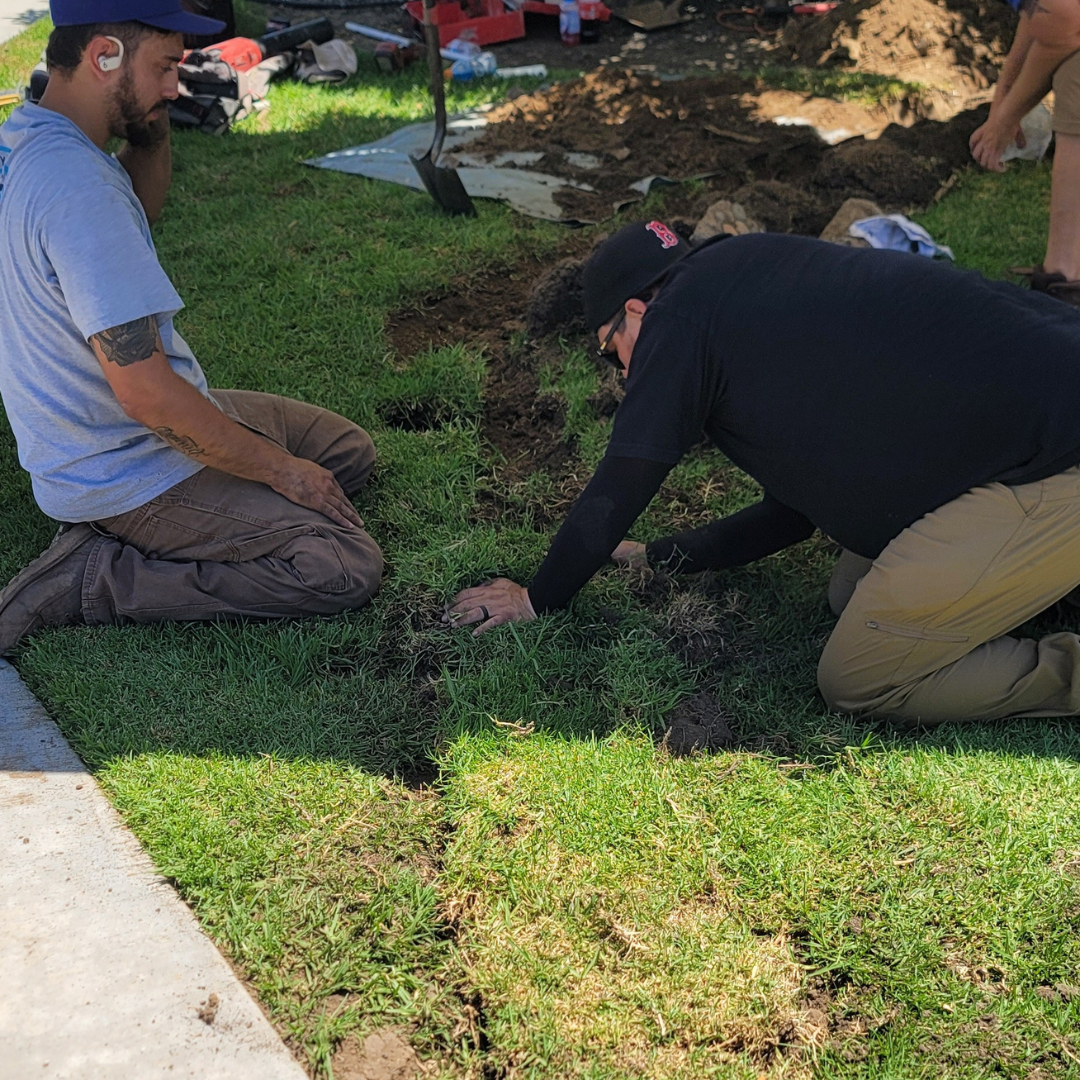
Call us to fix the flood
Turn off the main water supply to prevent further damage. Prolonging this can cause worse flooding to your home.

Schedule Your Luke Bates Plumbing and Rooter Appointment
Schedule an appointment with Luke Bates Plumbing and Rooter to replace the water main and restore your home’s water system quickly and efficiently.
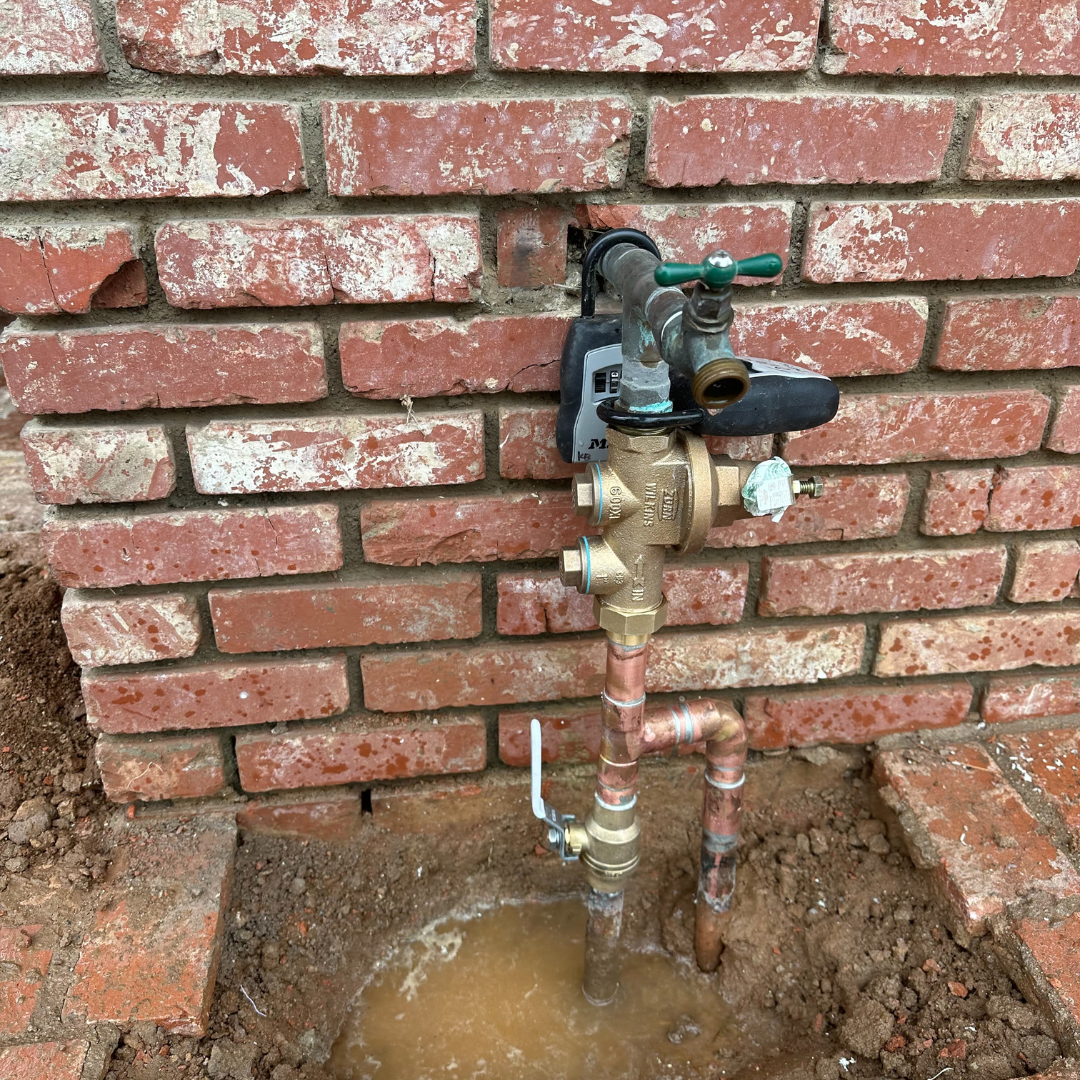
Our Process For Residential Plumbing Service
Pipe's Busted?

Notice signs like water pooling in your yard, a sudden drop in water pressure, or an unexplained spike in your water bill—these could indicate a water main leak.

Call us to Fix the Flood

Turn off the main water supply to prevent further damage. Prolonging this can cause worse flooding to your home.

Schedule Your Residential Plumbing Service Appointment

Schedule an appointment with Luke Bates Plumbing and Rooter to replace the water main and restore your home’s water system quickly and efficiently.
Things to Know About
Residential Plumbing Service
How does a tankless water heater differ from a traditional water heater, and is it worth the investment?
Tankless water heaters, unlike traditional water heaters, don’t store hot water in a tank. Instead, they heat water on demand as it flows through the unit. This results in several benefits: endless hot water supply, greater energy efficiency (since they only heat water when needed), and a longer lifespan—typically up to 20 years compared to 10-15 years for tank water heaters.
While the initial investment is higher, the energy savings and the elimination of standby heat loss make tankless water heaters a worthwhile consideration for many homeowners, particularly those with high hot water demand or limited space.
What should I do if I suspect a leak in my water main?
If you suspect a leak in your water main, it's essential to act quickly to prevent significant water damage and increased water bills. Common signs of a water main leak include unexplained wet spots in your yard, a sudden drop in water pressure, and unusually high water bills.
You might also notice water pooling around your home’s foundation. If you suspect a leak, turn off the water at the main shut-off valve and contact a professional plumber immediately. They can perform a thorough inspection and, if necessary, replace the damaged section of the water main to restore proper water flow and prevent further issues.
What should I consider before replacing my home’s water main?
Replacing a water main is a significant undertaking, so there are several factors to consider. First, assess the condition of the existing pipe—older pipes made from materials like galvanized steel or lead may be more prone to corrosion and leaks, necessitating replacement. Next, consider the material for the new water main; modern materials like copper or PEX are durable and resistant to corrosion.
It’s also essential to determine the size of the new pipe to ensure adequate water pressure and flow to your home. Finally, ensure that the installation complies with local building codes and that a professional plumber handles the work to avoid future issues.
How often should I have my plumbing system inspected?
It’s recommended to have your plumbing system inspected at least once a year by a licensed plumber. Regular inspections can identify potential issues such as leaks, corrosion, and clogs before they become major problems. During an inspection, a plumber will check all visible pipes, fixtures, and appliances, as well as test your water pressure and examine your sewer and drainage systems. Annual inspections are especially important for older homes, as aging pipes and fixtures are more prone to developing issues over time.
Why is my toilet constantly running, and how can I fix it?
A constantly running toilet is often caused by a faulty flapper valve, which controls the flow of water from the tank to the bowl. If the flapper is worn or misaligned, it may not create a proper seal, allowing water to continuously flow into the bowl. This not only wastes water but also increases your utility bills. To fix the issue, first, check the flapper valve for wear and replace it if necessary.
If the problem persists, the fill valve may need adjustment or replacement. In some cases, mineral buildup or sediment in the tank can also cause the toilet to run, so it’s essential to inspect all components and clean the tank if needed.
What are the benefits of installing a water softener in my home?
Installing a water softener can provide numerous benefits, particularly if your home has hard water. Hard water contains high levels of calcium and magnesium, which can lead to scale buildup in your pipes and appliances, reducing their efficiency and lifespan. A water softener removes these minerals, resulting in softer water that is gentler on your skin and hair, improves the performance of soaps and detergents, and prevents scale buildup in your plumbing system. Additionally, using soft water can extend the life of your water heater, dishwasher, and washing machine, leading to lower maintenance costs and improved energy efficiency.
What are the advantages of installing a clean-out for my sewer and waste lines?
Installing a clean-out in your sewer and waste lines provides an accessible entry point for inspecting, cleaning, and clearing blockages. Without a clean-out, accessing clogs or tree roots invading the sewer line can be more challenging and costly. A clean-out allows for quicker and more efficient maintenance, which can prevent sewage backups and minimize the disruption to your home. Additionally, having a clean-out installed can extend the life of your sewer lines by making it easier to perform regular maintenance and address minor issues before they escalate into significant problems.
Contact Us
Service Hours
Social Media
Monday - Friday: 9:00 AM - 5:00 PM
For After Hours Emergency Services
Things to Know About Residential Plumbing Service
How does a tankless water heater differ from a traditional water heater, and is it worth the investment?
Tankless water heaters, unlike traditional water heaters, don’t store hot water in a tank. Instead, they heat water on demand as it flows through the unit. This results in several benefits: endless hot water supply, greater energy efficiency (since they only heat water when needed), and a longer lifespan—typically up to 20 years compared to 10-15 years for tank water heaters.
While the initial investment is higher, the energy savings and the elimination of standby heat loss make tankless water heaters a worthwhile consideration for many homeowners, particularly those with high hot water demand or limited space.
What should I do if I suspect a leak in my water main?
If you suspect a leak in your water main, it's essential to act quickly to prevent significant water damage and increased water bills. Common signs of a water main leak include unexplained wet spots in your yard, a sudden drop in water pressure, and unusually high water bills.
You might also notice water pooling around your home’s foundation. If you suspect a leak, turn off the water at the main shut-off valve and contact a professional plumber immediately. They can perform a thorough inspection and, if necessary, replace the damaged section of the water main to restore proper water flow and prevent further issues.
What should I consider before replacing my home’s water main?
Replacing a water main is a significant undertaking, so there are several factors to consider. First, assess the condition of the existing pipe—older pipes made from materials like galvanized steel or lead may be more prone to corrosion and leaks, necessitating replacement. Next, consider the material for the new water main; modern materials like copper or PEX are durable and resistant to corrosion.
It’s also essential to determine the size of the new pipe to ensure adequate water pressure and flow to your home. Finally, ensure that the installation complies with local building codes and that a professional plumber handles the work to avoid future issues.
How often should I have my plumbing system inspected?
It’s recommended to have your plumbing system inspected at least once a year by a licensed plumber. Regular inspections can identify potential issues such as leaks, corrosion, and clogs before they become major problems. During an inspection, a plumber will check all visible pipes, fixtures, and appliances, as well as test your water pressure and examine your sewer and drainage systems. Annual inspections are especially important for older homes, as aging pipes and fixtures are more prone to developing issues over time.
Why is my toilet constantly running, and how can I fix it?
A constantly running toilet is often caused by a faulty flapper valve, which controls the flow of water from the tank to the bowl. If the flapper is worn or misaligned, it may not create a proper seal, allowing water to continuously flow into the bowl. This not only wastes water but also increases your utility bills. To fix the issue, first, check the flapper valve for wear and replace it if necessary.
If the problem persists, the fill valve may need adjustment or replacement. In some cases, mineral buildup or sediment in the tank can also cause the toilet to run, so it’s essential to inspect all components and clean the tank if needed.
What are the benefits of installing a water softener in my home?
Installing a water softener can provide numerous benefits, particularly if your home has hard water. Hard water contains high levels of calcium and magnesium, which can lead to scale buildup in your pipes and appliances, reducing their efficiency and lifespan.
A water softener removes these minerals, resulting in softer water that is gentler on your skin and hair, improves the performance of soaps and detergents, and prevents scale buildup in your plumbing system. Additionally, using soft water can extend the life of your water heater, dishwasher, and washing machine, leading to lower maintenance costs and improved energy efficiency.
What are the advantages of installing a clean-out for my sewer and waste lines?
Installing a clean-out in your sewer and waste lines provides an accessible entry point for inspecting, cleaning, and clearing blockages. Without a clean-out, accessing clogs or tree roots invading the sewer line can be more challenging and costly. A clean-out allows for quicker and more efficient maintenance, which can prevent sewage backups and minimize the disruption to your home. Additionally, having a clean-out installed can extend the life of your sewer lines by making it easier to perform regular maintenance and address minor issues before they escalate into significant problems.
Contact Us
+1 951-720-1896
Riverside, California
Riverside, California
Service Hours
Monday - Friday: 9:00 AM - 5:00 PM
Saturday: 10:00 AM - 2:00 PM
Sunday: Closed
Social Media
2026 | Luke Bates Plumbing and Rooter | Sitemap
